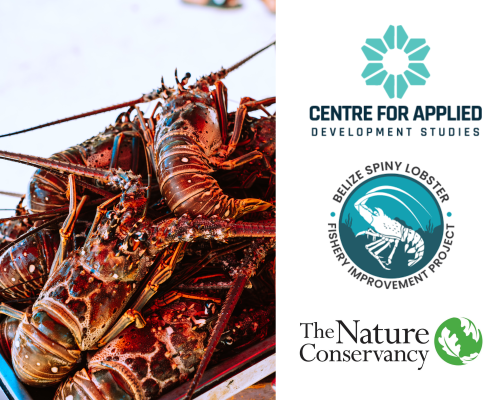Belize’s Spiny Lobster Fishery Improvement Project (FIP) has achieved significant progress towards its goals, thanks to the collaboration of key fishery stakeholders. The FIP has resulted in improvements in cooperative institutional strengthening, operational efficiencies, marketing capacity, electronic traceability adoption, satellite-based vessel monitoring, digital marine enforcement capabilities, scientific fisheries research, and policy advancement.
The Government of Belize passed the revised 2020 Fisheries Resources Act in support of the FIP’s goals. As a result, Belize’s FIP is the youngest, first, and only Spiny Lobster FIP to achieve a ‘B’ or an ‘A’ rating on the Fishery Progress online platform, which hosts the Fishery Improvement Project Progress Tracking Database & Tools. The FIP work plan has become an umbrella framework guiding all actions to improve the lobster fishery.
The Belize Spiny Lobster FIP+FDM project requires detailed coordination among all stakeholders to move the various elements of the FIP work plan forward. CADS will work closely with TNC and the FIP+FDM Steering Committee and Task Forces to progress, track, and report on all elements of the Belize Spiny Lobster FIP+FDM work plan and associated budget. The FIP Coordinator’s overall objective is to strategically support multi-stakeholder awareness, inclusion, and participation in the various aspects of the FIP, ensuring a continued high progress rating throughout the implementation of the remaining activities under the FIP work plan.
CADS previously provided technical assistance, training and service delivery to the National Fishermen Cooperative Society Limited, improving their capacity to use technology infrastructure to leap-frog their governance, financial and accounting systems, product processing and management in the context of the Covid-19 pandemic.

